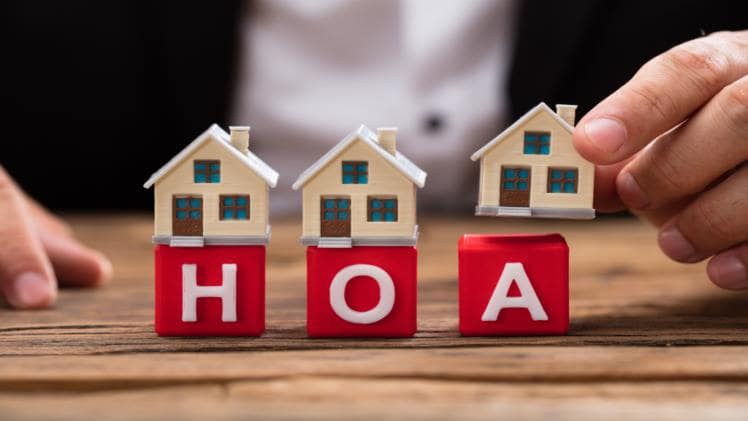Homeowners Association (HOA) rules can seem restrictive, but they allow the community to run smoothly. Community management should make sure that homeowners are informed about and able to follow the community rules. They should frequently communicate rules and their intentions to promote compliance and relevant policy updates. Here’s how a community association management company helps enforce the rules established by an HOA:
What Are HOA Rules?
These rules regulate various areas in the community, including architectural guidelines, pet policies, and parking enforcement. Every community has HOA rules and regulations recorded in the association’s governing documents (Covenants, Conditions, and Restrictions (CC&Rs), bylaws, and articles of incorporation.
Who Enacts Community Rules?
Community developers create HOA rules during the formation of the neighborhood. The board of directors updates the rules over time, based on the needs of the community. They amend and enforce these regulations among homeowners as part of their community association management initiatives.
Ways To Encourage HOA Compliance
Community management boards can sometimes struggle to enforce rules in their community. HOA rules need to be followed without violation to impact the neighborhood positively. If all goes as intended, compliance with neighborhood regulations results in happier homeowners, less stressed board members, and beautiful communities.
Below are some guidelines used by community association management to encourage rule compliance in a community:
Explain Intentions Behind Rules
Explaining the intentions behind different rules helps residents understand their purpose and worth. Board members sometimes make the mistake of neglecting to communicate why a specific law was made or why it has been modified. If homeowners do not know the purpose of a certain regulation, they are unlikely to follow it—both knowingly and unknowingly. Proper communication alert residents on the value of a law and drives compliance.
Community Association Management Committee
Community leaders should create a committee that regularly holds meetings with homeowners. Residents often look to community leaders to get their questions answered. Regular community meetings help to clear up misunderstandings between board members and homeowners regarding community rules.
A committee helps the board members to follow up on rates of compliance. The board members have different responsibilities, including those designated to observe how new policies impact the community. The committee also helps to keep track of homeowners’ adoption of new rules in the community.
Communication With Homeowners
Community association management requires direct communication and relationships with residents. You must inform residents of any violations they have made to the agreed-upon policies. Communication should occur immediately after the incident. This requires a personal relationship with homeowners. Having a close relationship with all homeowners helps community leaders to hold each one accountable.
Provide Notice
Whenever the community rules change, inform the residents promptly. Failing to give residents notice of changes in the regulations results in a rule violation.
Provide notices of between three months and a year, depending on the extent of the changes. For example, if maintenance fees go up, provide a three-month notice for homeowners to adjust their budgets. For significant changes, such as major construction or added local facilities, provide up to six months for residents to adjust as needed.
Communicate as Often as Possible
Regularly remind residents to follow the community association management rules in newsletters, on social media, and the community website. Failure to communicate results in a community of homeowners who are unaware of the local policies. Whether intentionally or ignorantly, a violation of community policy can result in undesirable disruptions for neighbors. Prompt communication promotes adherence to all HOA regulations, keeping the community running successfully.
Go Digital
Integrating digital strategies in HOA operations promotes faster responses. Homeowners can easily understand new rules if they are delivered on electronic newsletters. An alert system through text message notifications can also be a great way to inform residents of important meetings or deadlines. Facilitating community groups on social media, for instance, is excellent in promoting connectivity between homeowners.
Implement Rule Compliance Strategies in Your Community
Every community has HOA rules to aid the smooth operations of activities. Proper strategies need to be implemented to promote rule compliance among community members. Community association management companies are equipped with ways to communicate rules and the intentions behind them. Hire a local community management company to keep your community running in top condition.

